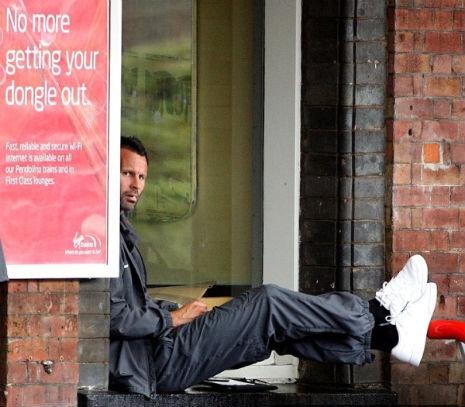
Writer Paris Lees, image via lastofthecleanbohemians
“Transgate”, the recent controversy surrounding writers Suzanne Moore and Julie Burchill’s comments about transgendered people online and in the print media, may seem like a bit of a storm in a teacup to those who have not been directly affected by the issues.
But it could be a decisive moment, not just for transgender awareness, but also how people view the “oldstream” media (in the UK at least) and in turn how social media can shape and express changes in public opinions exponentially quicker, and much more powerfully, than print and television can.
That’s one of the very interesting topics of conversation in a Google Hangout-filmed debate posted by Channel 4 News yesterday, titled Transsexual people and the online age of outrage. It features writer Paris Lees, of META magazine and this well read Vice article, Sarah Savage of Channel 4’s My Transexual Summer, and experts on social media and transgender-issues.
Transgate certainly seems, as is mentioned in the video, a tipping point in public aware of the transgender community and the struggles faced by its members. I certainly don’t remember this much debate around a trans issue in my lifetime, and if there’s any heartening aspect to this whole shameful debacle, it’s that the backlash suggests trans people now have more allies than ever before.
But aside from drawing attention to the hateful attitudes certain persons, columnists, and even schools of feminism display towards people on the trans spectrum, this whole issue has made it that much clearer to the public just how valuable our opinions (and our freedom to express them) are to oldstream media. More and more, the cries of “freedom of speech!” and “anti-censorship” employed by columnists and news institutions over the last week are beginning to translate to the general public as “freedom for us to tell you how it is!”
This is particularly evident when commenters try to repost quotes from the Burchill article itself in the comments sections under certain op-ed pieces decrying the removal of her article only to see the quotes themselves removed. It has happened to me, and it has happened to others, and it makes a mockery of any kind of claim to “free speech”. Why should a writer of such low caliber as Julie Burchill be allowed to make statements about a social group, when members of the public are blocked from doing so?
It’s quite simply a PR disaster for print journalism.
This comes at a time when the Levenson Enquiry is trying to establish whether an independent regulator is needed for the British press. As people are getting their news from online sources much more these days, and thus beginning to doubt the role (and agendas) of mainstream news outlets, journalists are unlikely to be able to whip up enough outrage—real or “manufactured”, a frankly hypocritical term journalists LOVE to use about any controversy that they themselves did not stir up—to make people give a damn.
And let’s be clear about one thing, this is NOT an issue of “censorship”, a claim that’s getting bleated over and over in various echo chambers. If the offensive article was really “censored”, then how come it’s so easy to find on another major, mainstream news platform? I thought “censored” meant it would be gone for good? Or only available through a leaks site? Not on the site of the Daily Telegraph, surely?
This quote from Harry Giles very neatly explains the difference between “censorship” and “editorial policy”:
“… the columnists get it wrong … most call the Observer’s decision “censorship”, without expanding what they mean by that. This makes it seem as if the Observer’s decision were equal with a government passing a law against a speech or a type of speech. Government censorship prevents all speech of a certain kind, or an instance of speech, from happening in a country. Newspaper censorship – another word for which is “editorial policy” – says “we do not think this kind of speech should happen in our house”. Granted, because newspapers have a particular important role in a free speech society, they should be more careful about restrictions in their editorial policy than I would about restrictions on my Facebook wall.”
That is part of an excellent blog post by Giles, called Julie Burchill, Newspapers and Freedom of Speech, that dissects Transgate in a cool, calm and steadfastly philosophical fashion. It’s one of the best analyses I have read about the whole matter, and avoids being confrontational, or emotional (which is pretty hard, considering the language used by both Burchill and Moore.) I highly recommend it.
And for more enlightened discussion of Transgate and the mainstream media’s reaction to the “Twitter storm” here is the Channel 4 News discussion:
Transsexual people and the online age of outrage







